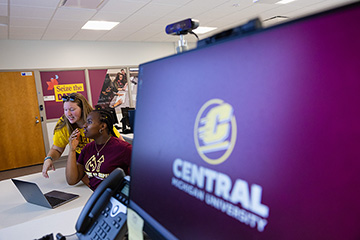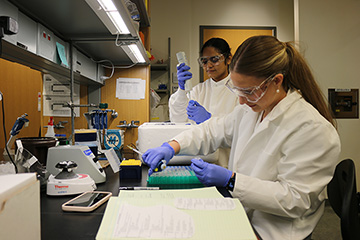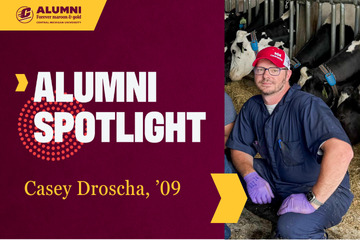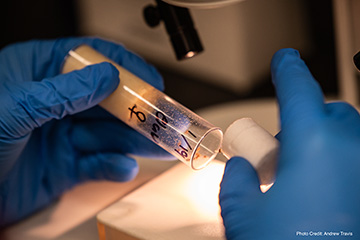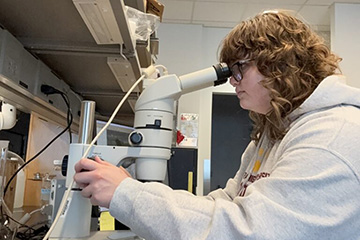CMU student studies mysterious protein that could hold clues to cancer
Cody Morrison, a student researcher at Central Michigan University, is using a soil-dwelling amoeba to uncover the function of a little-understood protein that may be linked to human diseases, including cancer.
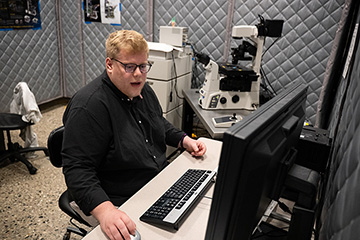 Working in the lab of biology faculty member Dr. Cynthia Damer, Morrison is studying Dictyostelium discoideum, a type of amoeba often used in genetic research. His focus is on a family of proteins known as copines, which exist in a wide range of organisms, including humans.
Working in the lab of biology faculty member Dr. Cynthia Damer, Morrison is studying Dictyostelium discoideum, a type of amoeba often used in genetic research. His focus is on a family of proteins known as copines, which exist in a wide range of organisms, including humans.
To investigate their function, Morrison and his team use reverse genetics to alter specific copine genes, creating mutant amoebas. By comparing these mutants to their non-mutated counterparts, the lab can observe how the absence of certain proteins affects the cell.
In a recent publication, the Damer Lab explored the role of a specific protein, Copine A. “We wanted to test the hypothesis that Copine A regulates calcium,” Morrison said. “Our results showed that Copine A is essential for maintaining calcium homeostasis in Dictyostelium.”
That’s a big deal because calcium ions play a critical role in cellular communication and regulation. The discovery marks the first clear evidence of a copine protein regulating calcium levels in animal-like cells, previously only observed in plants.
Why study this in amoebas? Because what researchers learn from Dictyostelium may apply to humans. Dysregulated copine levels have been found in various cancers, yet their role in disease remains unclear. “Despite their presence across species, a common mechanistic function for copines is still a mystery,” Morrison explained. “This research could one day inform how calcium dysregulation contributes to human diseases like cancer.”
For Morrison, the research journey has been both challenging and rewarding.
“Scientific research is hard. But that’s exactly what I love about it,” he said. “There’s something uniquely satisfying about asking a question, designing experiments, and confronting the data, even if it contradicts your expectations.”
He also credits the people around him for making the work possible. “I’m incredibly thankful to my mentor, Dr. Amber Ide, and to Dr. Damer. Having an advisor who values scientific rigor and student growth makes all the difference.”
The lab’s findings could one day help unravel the role of copines in human health, and bring researchers one step closer to understanding how certain proteins may contribute to complex diseases like cancer.
